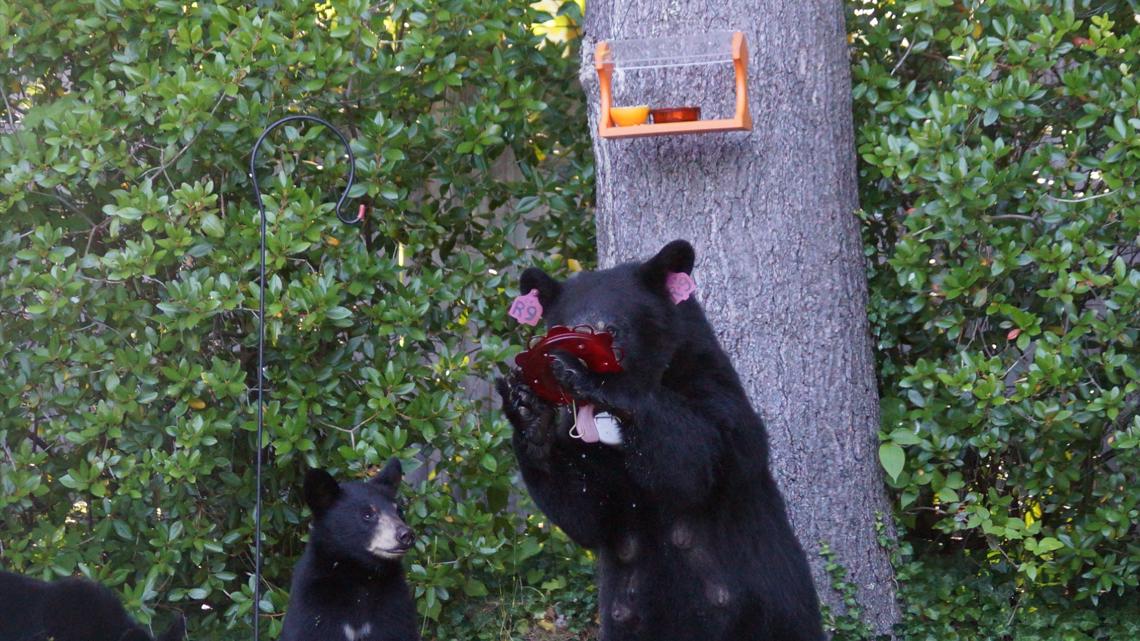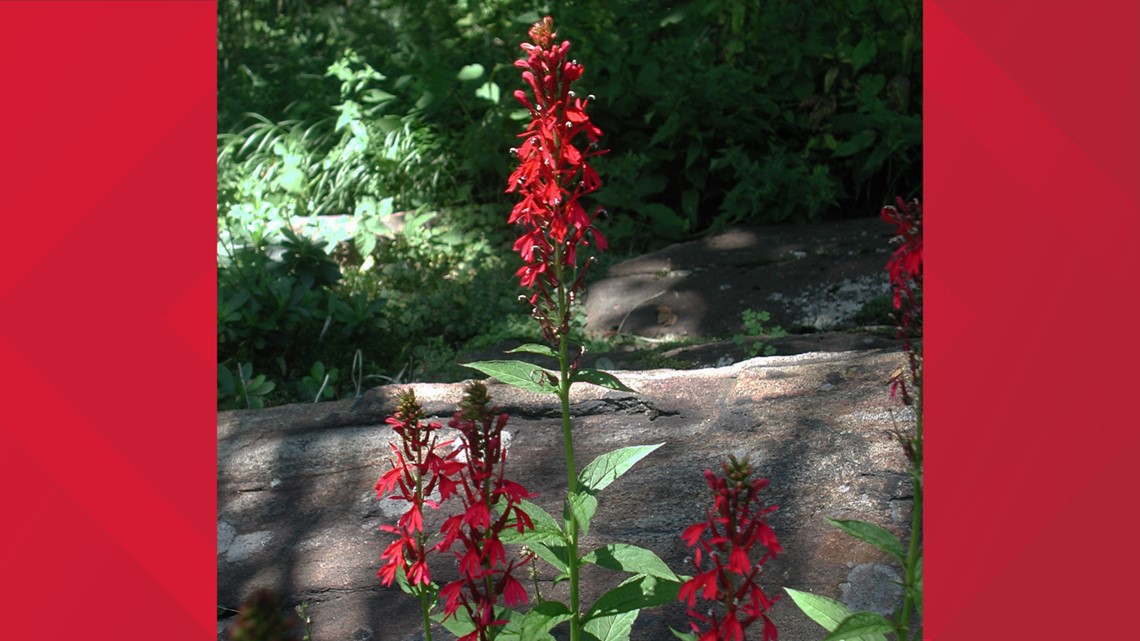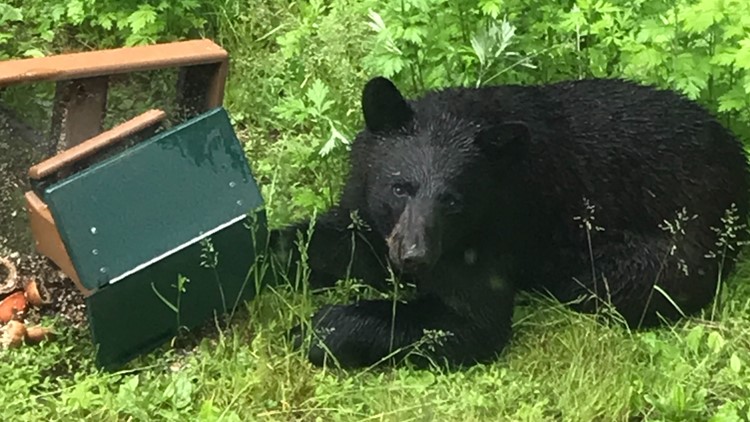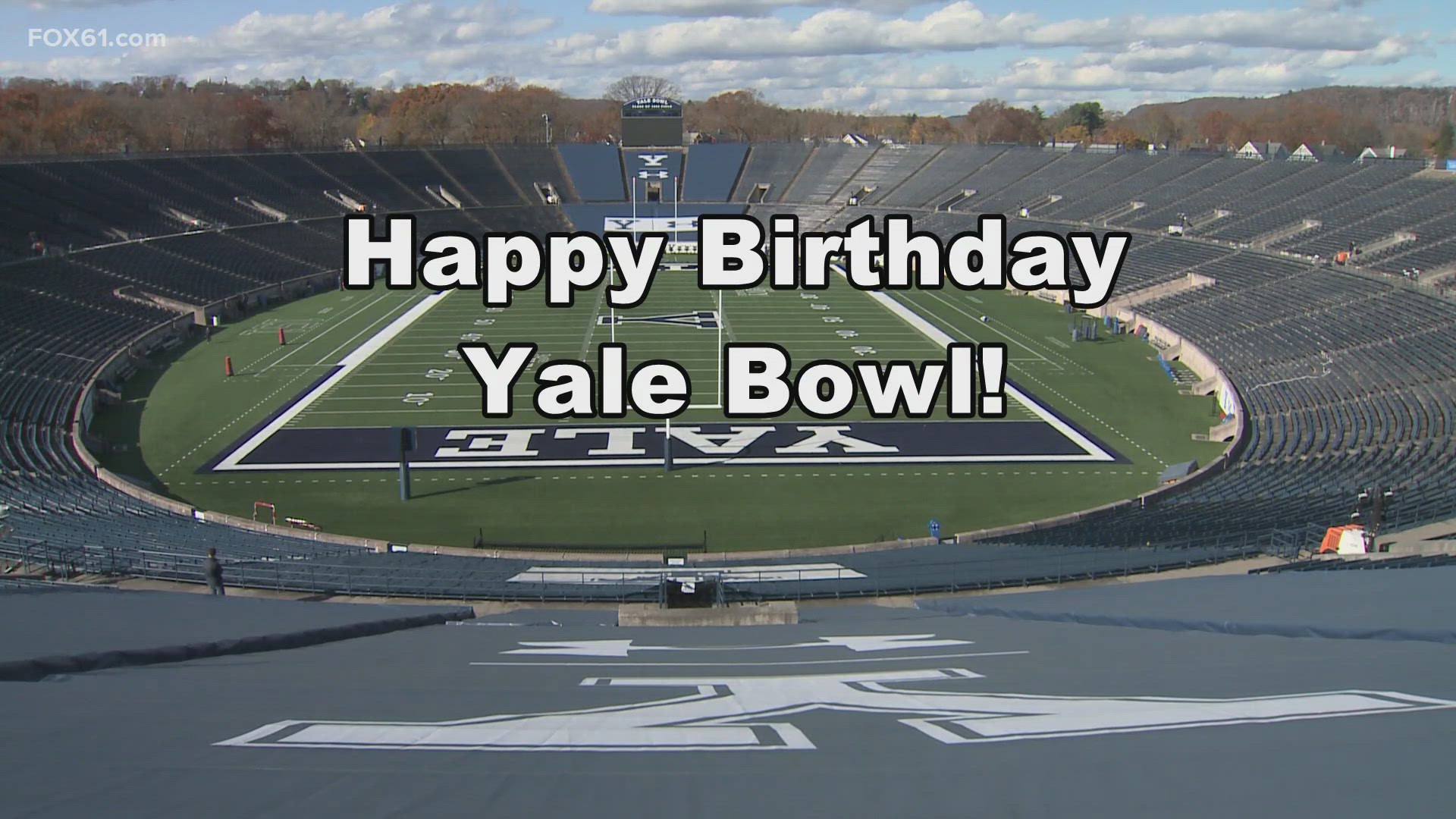HARTFORD, Conn. — Residents are being asked to be bear aware this spring.
The state’s Department of Energy and Environmental Protection, and the National Audubon Society’s Connecticut office, are urging residents to take down their bird feeders as black bear activity increases in early spring following winter denning season, according to a DEEP release on Tuesday.
The reminder was released to encourage people to protect both their communities and bears “by not reinforcing behaviors that result in human-bear conflicts,” the release said, noting that simple steps can reduce the likelihood of encounters, conflicts and potential harm to humans and bears.
An event was held on Tuesday at the Bent of the River Audubon Center in Southbury, where speakers stressed the importance of taking down bird feeders, which DEEP said are easy and tasty sources of calories for bears. Bird feeders are known to bring bears close to residences and condition them to become comfortable in neighborhoods.
Preventing bears from gaining access to human food is key. DEEP said Connecticut is the nation’s 14th most forested state, and much of its landscape is sustainable to bear habitat. Connecticut is also the fourth-most densely populated state in the country, so bears will inevitably exist near people.
In the state of Connecticut, it is illegal to feed bears.
DEEP reports that human-bear conflicts have risen and become more severe in the state, as bears entered people’s homes in Connecticut 35 times in 2023. Eight years ago, bears entered homes less than 10 times annually.
“No matter where you live in Connecticut, you could encounter a bear, as sightings have been recorded in all 169 towns and cities. Bears are also reproducing across almost half of the state, continuing a long-term trend of expansion into more cities and towns,” DEEP said.


Seven years ago, bears with cubs were reported in less than 50 towns; over the past few years, they have been reported in more than 90 towns, DEEP reported. Human-associated foods such as birdseed, trash or pet food are calorie-rich and attractive to bears. When black bears begin to eat human-associated foods, they become comfortable near people and associate humans, houses and neighborhoods with food.
Houses and cars can be damaged by food-conditioned bears, and pets and livestock are also at great risk when left unmonitored, DEEP said.
“Human-bear conflicts are increasing – both in frequency and severity,” DEEP Commissioner Katie Dykes said. “It is critically important to the health of our bear population, and for the safety of Connecticut residents, that residents understand how to co-exist with bears in our communities; we want people and bears to be safe.”
Dykes said that begins with making sure homes are “no-bear-food-zones” and keeping pets supervised and leashed.
Michael Burger, executive director of Audubon Connecticut and New York, said birds rely on caterpillars, insects and other natural food sources to feed their young during the spring and summer breeding seasons, noting that Audubon supports DEEPs recommendation to remove bird feeders.
“The temporary change will not have a negative impact on the birds you love, and you can always attract birds to your home with the addition of native plants,” Burger said, listing examples such as black-eyed Susan, Cardinal flower and Bee Balm.


DEEP said that bears who are attracted to homes by easily accessible foods lose their fear of humans and rewarding bears with easy meals means they’ll spend more time near people, increasing the risk to public safety. That puts bears in danger and heightens the likelihood of property damage.
“It is up to all of us to help prevent bears from learning bad behavior,” Jenny Dickson, acting chief for the DEEP Bureau of Natural Resources, said.
To learn best practices to follow to reduce the likelihood of an encounter with bears, one can check DEEP’s “Living with Black Bears” webpage, and a video incorporating these best practices can be found here.
In addition to taking down bird feeders, DEEP said residents should store garbage in secure, airtight containers inside a garage or other enclosed storage area, always supervise pets when outside, avoid storing recyclables in a porch or screened sunroom, as bears can smell these items, stop leaving pet food outdoors or placing food scraps in compost piles and keep barbecue grills clean.
If you encounter a bear, DEEP said to make your presence known by creating loud noises or using a bear whistle. Don’t get closer to a bear and, if the bear does not retreat, slowly leave the area. If cornered, “go on the offensive” and shout, wave your arms or throw sticks and rocks.
When close to a bear, don’t try to take a photo; prioritize putting distance between yourself and the bear.
Reporting bear sightings can assist DEEP in monitoring changes to the bear population. Anyone who observes a black bear in Connecticut can report the sighting to DEEP’s website or email deep.wildlife@ct.gov. One can read DEEP’s current 2024 bear report here.
Dalton Zbierski is a digital content producer at FOX61 News. He can be reached at dzbierski@FOX61.com.
---
Do you have a story idea or something on your mind you want to share? We want to hear from you! Email us at newstips@fox61.com.
----
HERE ARE MORE WAYS TO GET FOX61 NEWS
Download the FOX61 News APP
iTunes: Click here to download
Google Play: Click here to download
Stream Live on ROKU: Add the channel from the ROKU store or by searching FOX61.
Steam Live on FIRE TV: Search ‘FOX61’ and click ‘Get’ to download.



